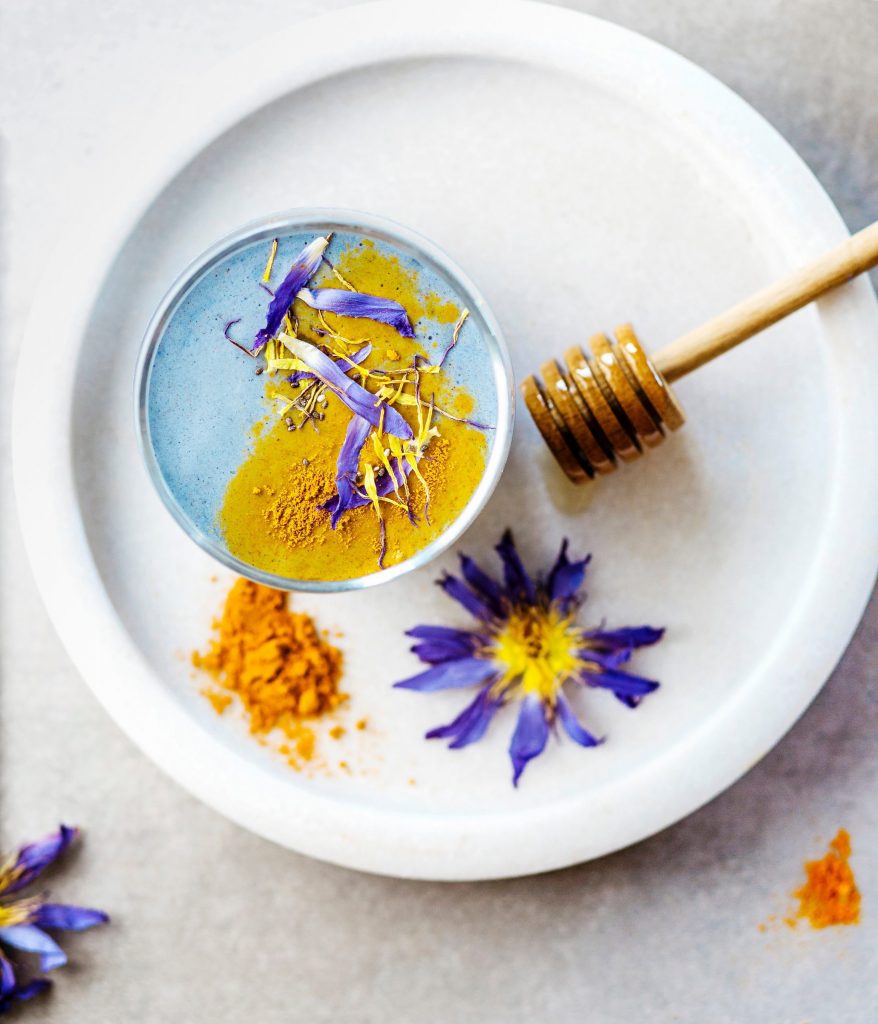
Home / Health & Wellness / Supporting Seasonal Allergies Naturally: What Should I Eat?

Seasonal sneezin’ gotcha down? You’re not alone-seasonal allergy symptoms are on the rise as a result of climate change causing extreme pollen counts this year and in the years to come (1). To add to the mayhem, seasonal allergies or hay fever can affect us all the way through spring, summer and even through fall! What’s the good news? Medicine is not the only answer! There are plenty of foods and herbs that can help fight allergies naturally.
I recommend avoiding foods that are high in histamine. What are high histamine foods? Anything that is aged, fermented or smoked. Think: smoked salmon, kombucha, sauerkraut, aged cheeses, beef jerky, etc. While this may seem counterintuitive to the typical recommendation to eat plenty of fermented foods for gut health, for those struggling with severe allergy symptoms the overall histamine load from food and environment may just be too much. Try focusing instead on fresh, whole foods like grass-fed beef, wild salmon, organic produce, and a diet generally devoid of foods known to be correlated with inflammation: gluten, dairy, soy, peanut, and sugar.
Combating seasonal allergies doesn’t have to be a constant battle with over-the-counter medications. By embracing a diet rich in natural antihistamines and inflammation-fighting compounds, and steering clear of high-histamine culprits, you can significantly alleviate your allergy symptoms. Remember, a proactive approach, combined with seasonal allergy treatment options recommended by your healthcare provider, can help you enjoy the beauty of every season without the sneezes and sniffles. From savoring local honey to incorporating more red bell peppers into your meals, these dietary adjustments can make a world of difference in your journey toward allergy relief.
Get free shipping.
Free Shipping
5% Discount


At home.
Blood and Urine
$179 – $439
Depending on insurance coverage.


This is a comprehensive stool test that relies on quantitative polymerase chain
reaction (qPCR) technology to detect parasites, bacteria, H. pylori, fungi, and more by targeting the specific DNA of the organisms tested. Click here for more information.
At home.
Stool
$399
Depending on insurance coverage.


At home.
Urine
$129
Depending on insurance coverage.


At home.
Swab
$299
Depending on insurance coverage.


At home or in lab.
Blood
$999
Depending on insurance coverage.


At home.
Blood, Urine, or Ticks
may have a $200 copay
Covered by most insurance.


At home.
Urine
$300
Depending on insurance coverage.


At home.
Urine
$199
Depending on insurance coverage.


This test evaluates the genetic profile for multiple health indicators. Click here for more information.
At home
Blood Spot


At Home
Urine
$699
Fully covered by Medicare. Repeat test prices $249


$85-$225 depending on insurance coverage.




This company can test for lyme, babesia, bartonella and additional tick-borne illnesses. Click here for more information.
Blood
around $1600 (depends on panel selected)


This test is designed to look at food sensitivities (IgG immune responses). It is available in both a 99 or 184 panel. Click here for more information.
Blood
$129-238


No insurance coverage


Blood




This test evaluates the gut function and indicates microbiome balance, overgrowth, infection, inflammation, parasites and digestive efficacy. Click here for more information.
$179-$439 depending on insurance coverage.


This test evaluates many measures including micronutrients, antioxidants, minerals, detox, overview of gut function, omegas and toxic exposure. Click here for more information.
At home.
Urine
$150 – $329


Blood work for blood count, urinalysis and vitamin levels.
At any Quest Diagnostics Location
Blood
You often have to fast for these tests-please check your providers notes.




$310